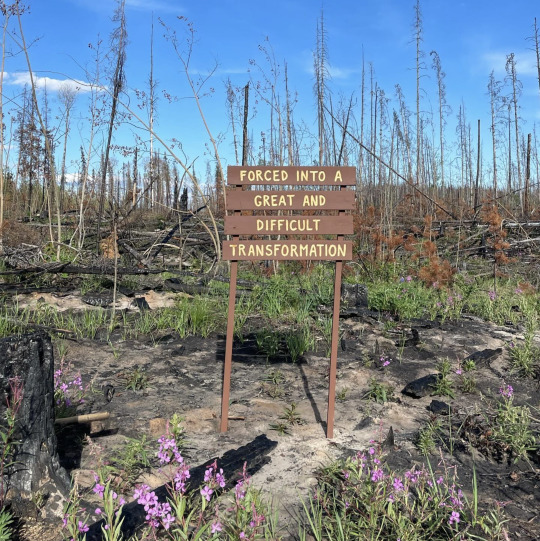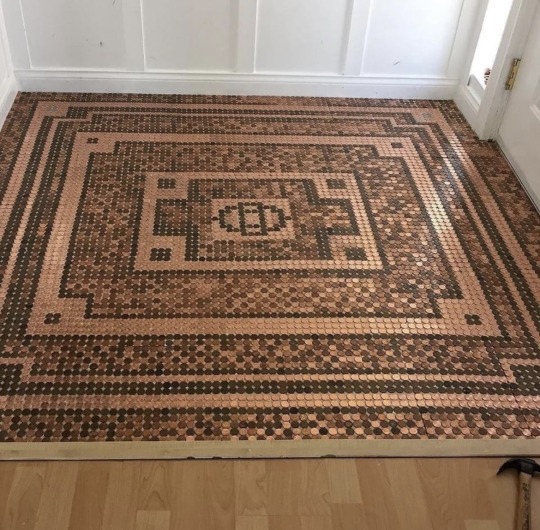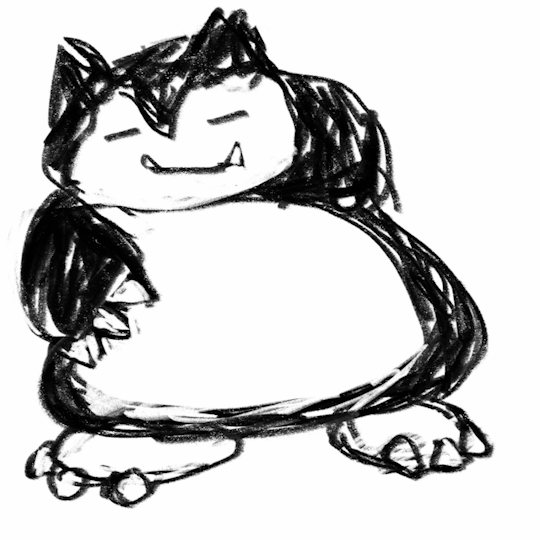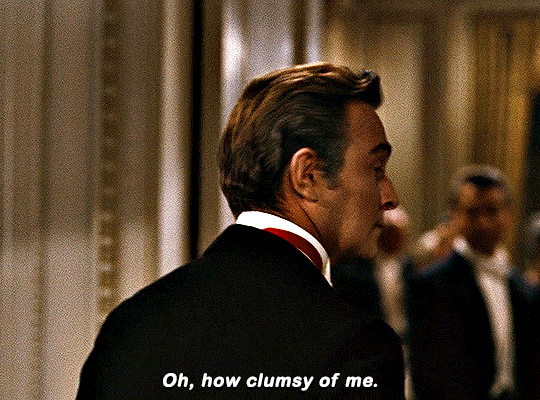Lover of plants (natives! vegetables! herbs! fruits!), textiles, cooking, reading....
Don't wanna be here? Send us removal request.
Text
goosebumps as a concept are so funny ur brain is like "oh no we're threatened! quick! make us look bigger!" and your skin, that absolutely does not have the ability to do that, is like "absolutely. right away boss"
24K notes
·
View notes
Text
i told one of the preschoolers i was going to take a nap when i got home and she asked me three times if i was joking and then afterwards just flat out refused to believe me
11K notes
·
View notes
Text
My favorite detail about Jurassic Park is that it has a baked-in justification for any and all retcons it might need to make due to paleontology advancing forwards.
Because there is not a single dinosaur that has ever appeared in Jurassic Park.
Not one. Not in the books. Not in the movies. Not ever.
"Now what John Hammond and InGen did at Jurassic Park was to create genetically engineered theme park monsters." ~Alan Grant
Grant says that in a moment of cynicism. It's part of his arc for the film. But it's not inaccurate. What Jurassic Park has, what it's always had since the very first novel, are "Mostly Dinosaurs".
"And since the DNA is so old, it's full of holes! Now, that's where our geneticists take over!" ~Mr. DNA
It's impossible to recover a fully intact gene sequence from an ancient amber mosquito. Cloning a pure dinosaur would have been completely impossible, and so the park filled in the gene sequence with whatever works. Frog. Lizard. Bird. Whatever they need to get the result they are trying to get.
Every single dinosaur is a chimeric beast made up of mostly dinosaur and a bunch of other stuff that some scientists thought would achieve the appropriate dinosaur-like result.
"Nothing in Jurassic World is natural! We have always filled gaps in the genome with the DNA of other animals. And if the genetic code was pure, many of them would look quite different." ~Dr. Henry Wu
Which, from a writing perspective, is fucking genius. Because now you have a preset excuse for each and every plot hole your movie has.
Like. Why don't the raptors have feathers? Because of the chimera DNA.
Why do dilophosaurs spit venom? Because of the chimera DNA.
Why do T-Rexes have movement based vision? Oh, they don't. But Rexy does. Because of her chimera DNA.
Why is the Spinosaurus so fucking big? Because of the chimera DNA.
Why are the velociraptors mislabeled? Because Hammond's a dipshit.
Like. I've always marveled at the way Jurassic Park started out by giving itself a blanket excuse to be wrong about every single thing it ever said about the central attraction of its franchise. It's honestly beautiful, and allows the series a degree of immortality well into the era where we know better about its animals.
16K notes
·
View notes
Text
Tip: You can keep just about any guy in a little bottle on your bookshelf
24K notes
·
View notes
Text

If you want to learn more about the wonders of pigeons, I wrote a book for you.
1K notes
·
View notes
Text











Arches, 11/24
REALLY tough photo conditions in Arches, but worth it to be nearly alone in the park most days! When else do you get Delicate Arch to yourself for like 45 minutes than when it's like 15F and windy. Wish I could have made better use of that time but whatever.
509 notes
·
View notes
Text

Liz Toohey-Wiese, 2024.
"A sign installed in the largest wildfire burn I’ve ever seen, along the BC/YK border. Borrowing the aesthetics of BC Recreation Site signs, once again pointing to the overlaps of outdoor recreation, resource extraction, and the consequences of the climate crisis. Most recreation sites in BC exist along previously built logging and mining roads.
“Forced into a great and difficult transformation” was a line I heard in a lecture on Buddhist philosophy I was listening to on my drive up north. But it became another mantra I thought about while living in a place that’s been utterly transformed by resource extraction over the past century, and as I thought about the burnt landscapes I drove through."
More here.
7K notes
·
View notes
Text
So it's come my attention that there are a lot of students, particularly in humanities and social sciences disciplines, who need to hear this, so here goes:
Do the readings.
Oh my God, just do the readings. I promise, it gets easier once you get into the habit of it.
What makes a good student? Doing the readings. Literally just doing the readings is enough to make you a good student.
13K notes
·
View notes
Text







A redditor u/spottedgolfing shares the process of the penny floor they installed into their homes foyer.
48K notes
·
View notes
Text
"Abby Allen has no problem with her neighbours peering over her luxuriant hedges to see what she is up to on her farm.
For years she has been carrying out ad hoc experiments with wildlife and farming techniques; in her lush Devon fields native cattle graze alongside 400-year-old hedgerows, with birds and butterflies enjoying the species-rich pasture.
Under the environmental land management scheme (ELMS), introduced by the government in 2021, those experiments were finally being funded. “We have a neighbour who has always been more of an intensive farmer,” she says, but he is now considering leaving fields unploughed to help the soil. “It genuinely is having such a huge impact in changing people’s mindsets who traditionally would never have thought about farming in this way.”
The new nature payments scheme followed the UK’s exit from the EU, when the government decided to scrap the common agricultural payments scheme, which gave a flat subsidy dependent on the number of acres a farmer managed. In its place came ELMS, which pays farmers for things such as planting hedges, sowing wildflowers for birds to feed on and leaving corners of their land wild for nature.
But these schemes are now at threat of defunding, as the Labour government has refused to commit to the £2.4bn a year spending pot put in place by the previous Conservative government. With spending tight and the chancellor, Rachel Reeves, cutting back on infrastructure and hinting at tax rises, a cut to the ELMS scheme may be on her list.
However, government data released last week found the schemes were working to tentatively bring nature back to England’s farmland. Butterflies, bees and bats are among the wildlife being boosted by ELMS, with birds among the chief beneficiaries, particularly ones that largely feed on invertebrates. An average of 25% more breeding birds were found in areas utilising the eco-friendly schemes.
...there are also farmers who welcome the schemes. Allen says the ELMS has helped her farm provide data and funds to expand and improve the good things they were doing for nature. “Some of the money available around things like soil testing and monitoring – instead of us going ‘we think these are the right things to do and providing these benefits,’ we can now measure it. The exciting thing now is there is money available to measure and monitor and kind of prove that you’re doing the right things. And so then you can find appropriate funding to do more of that.”
Allen, who is in the Nature Friendly Farming Network, manages a network of farms in England, most of which are using the ELMS. This includes chicken farms where the poultry spend their life outside rather than in sheds and other regenerative livestock businesses...
Mark Spencer was an environment minister until 2024 when he lost his seat, but now spends more time in the fields admiring the fruits of his and his family’s labour. He says that a few years of nature-friendly agriculture has restored lapwings and owls.
“On the farm, I haven’t seen lapwings in any number for what feels like a whole generation. You know, as a kid, when I was in my early teens, you’d see lapwings. We used to call them peewits. We’d see them all the time, and they sort of disappeared.
“But then, me and my neighbours changed the way we did cropping, left space in the fields for them to nest, and suddenly they returned. You need to have a piece of land where you’re not having mechanical machinery go over it on a regular basis, because otherwise you destroy the nest. We’ve also got baby owls in our owl box now for the first time in 15 years. They look mega, to be honest, these little owls, little balls of fluff. It is rewarding.”"
-via The Guardian, August 23, 2024
564 notes
·
View notes
Text
gonna be honest nothing has fucked with my head more than learning that the UK only has three species of snake. like what do you mean three? three species with twelve subspecies? three native species but a ton of other nonnative ones? three species technically but it's an accident of ancient taxonomy?
nope. just three
33K notes
·
View notes
Text










Women in Field Ecology at University of Chicago, 1910 - 1923
333 notes
·
View notes







